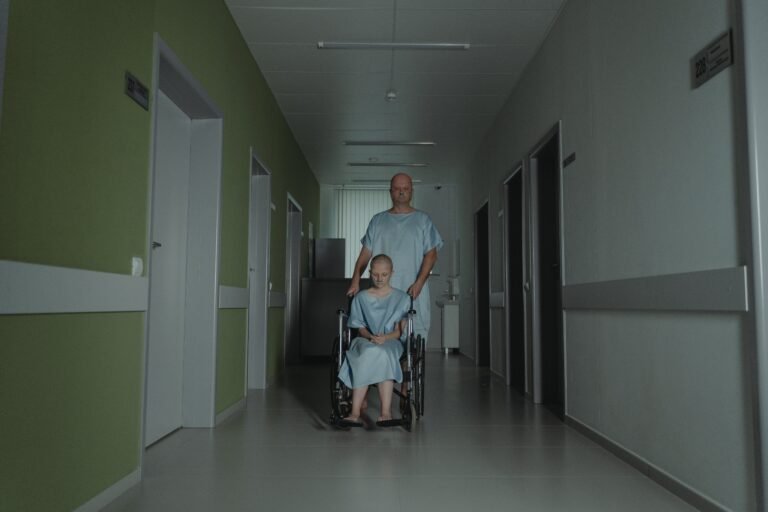Cancer is a group of diseases attributed to the uncontrolled growth and spread of abnormal cells in the body. These abnormal cells can form tumors or invade nearby tissues and organs, disordering their normal functions. There are various types of cancer, and they can occur virtually anywhere in the body. The development of cancer is often characterized by genetic mutations that accumulate over time, leading to the loss of normal cellular regulation.
Risk factors for cancer include genetic predisposition, certain lifestyle factors (such as diet and physical activity), and exposure to certain environmental factors (such as tobacco smoke, UV radiation, and certain chemicals). Cancer can affect people of all ages, and the disease can have an intense impact on various aspects of a person’s life, including physical health, emotional well-being, and social relationships.
Despite other treatment options for cancer such as surgery, radiation therapy, chemotherapy, immunotherapy, and targeted therapy, Cognitive Behavioral Therapy (CBT) offers valuable tools and techniques to support individuals facing the challenges of a cancer diagnosis and its treatment. Firstly, CBT aids patients in managing the emotional impact of the disease. By addressing the psychological aspects of the disease, CBT contributes to improving strategies for emotional well-being, coping skills, and an overall positive outlook.
Do CBT Techniques For Cancer Patients Work? 12 Helpful Tips

Yes, CBT techniques for cancer patients work and assist the patients in developing practical coping mechanisms for the various stressors and disruptions that the disease can introduce into their daily lives. Collectively, the CBT techniques empower cancer patients to navigate the complexities of their journey, encouraging resilience and promoting a holistic approach to well-being that extends beyond the physical aspects of the disease. Cognitive-behavioral therapy (CBT) techniques are valuable for cancer patients in managing the emotional and psychological challenges that usually accompany the diagnosis and treatment of cancer. Here are the twelve most effective CBT techniques that may be beneficial for cancer patients included as:
1. Cognitive Restructuring
Cognitive restructuring, a fundamental technique in Cognitive Behavioral Therapy (CBT), proves invaluable for cancer patients by addressing and reshaping negative thought patterns that contribute to emotional distress. For individuals facing a cancer diagnosis, cognitive restructuring involves identifying and challenging irrational or distorted beliefs related to their illness, treatment, and prognosis. By working with a therapist, patients can systematically examine the evidence supporting or contradicting their negative thoughts, fostering a more balanced and realistic perspective. This process empowers cancer patients to replace catastrophic thinking with adaptive and constructive cognitions, ultimately enhancing their ability to cope with the psychological challenges of the disease. Cognitive restructuring equips individuals with tools to navigate uncertainties, manage fears, and cultivate a more positive mindset, contributing to improved emotional well-being and an enhanced capacity to cope with the unique stressors associated with a cancer diagnosis and treatment journey. Regular practice of cognitive restructuring promotes resilience and adaptive coping mechanisms, positively impacting a patient’s overall quality of life.
2. Mindfulness Meditation
Mindfulness meditation is one of the efficient technique CBT techniques for cancer patients that can offer valuable support to cancer patients by addressing the psychological and emotional challenges associated with the illness. Mindfulness meditation encourages patients to cultivate a non-judgmental awareness of the present moment, helping them manage stress, anxiety, and pain. This practice promotes emotional regulation and can contribute to an improved overall quality of life. CBT, on the other hand, provides tools to identify and modify negative thought patterns, offering practical strategies to cope with the psychological impact of cancer. Together, these techniques empower patients to navigate the complex emotional landscape of cancer by promoting relaxation, enhancing emotional resilience, and fostering positive cognitive restructuring, ultimately contributing to a holistic approach to well-being in the face of a cancer diagnosis. Collaboration with healthcare professionals is crucial to tailor these techniques to individual needs within a comprehensive cancer care plan.
3. Thought Records
Thought records are a key component of Cognitive Behavioral Therapy (CBT) and can be particularly beneficial for cancer patients in managing the emotional impact of their diagnosis and treatment. In the context of cancer, thought records involve patients identifying and documenting their thoughts and associated emotions in response to specific situations related to their illness. By inspecting these thoughts, patients, and therapists can collaboratively explore and challenge any distorted or negative beliefs that may contribute to heightened stress or emotional distress. This process allows individuals to develop more adaptive and realistic perspectives, promoting resilience and coping skills. For cancer patients, thought records become a tool to address fears, uncertainties, and negative thought patterns related to their health, fostering a cognitive restructuring that can contribute to a more positive psychological outlook and improved emotional well-being throughout the cancer journey. Regular use of thought records enables patients to gain better control over their cognitive responses to the challenges of cancer, facilitating a more constructive and empowered approach to coping.
4. Relaxation Techniques
Relaxation techniques within the framework of Cognitive Behavioral Therapy (CBT) serve as a valuable coping strategy for cancer patients dealing with the physical and emotional toll of the illness. These strategies often include progressive muscle relaxation, deep breathing exercises, and guided imagery. By incorporating these practices, individuals can learn to manage stress, alleviate anxiety, and promote a sense of calm. For cancer patients, relaxation techniques offer a tangible way to address the physiological responses to stress and pain, fostering a mind-body connection. By integrating relaxation into their coping repertoire, patients may experience improved sleep, reduced muscle tension, and an overall enhanced ability to navigate the challenges of cancer treatment and recovery. Regular practice of relaxation techniques empowers individuals to actively participate in their well-being, contributing to a more comprehensive and holistic approach to managing the physical and emotional aspects of a cancer diagnosis.
5. Positive Affirmations
Positive affirmations within the framework of Cognitive Behavioral Therapy (CBT) can be an empowering tool for cancer patients, helping to shift their cognitive perspective and promote a more positive mindset. This technique involves the repetition of positive statements or affirmations that challenge and replace negative thoughts or beliefs related to the illness. For cancer patients, positive assertions can address fears, uncertainties, and emotional distress by fostering a sense of hope, resilience, and self-compassion. By regularly engaging in this practice, individuals can cultivate a more optimistic outlook, enhance their ability to cope with the challenges of cancer and promote a greater sense of control and self-efficacy in the face of their diagnosis and treatment. Positive affirmations become a constructive and accessible cognitive intervention, contributing to improved emotional well-being throughout the cancer journey.
6. Gratitude Journaling
Gratitude journaling, incorporated into the framework of Cognitive Behavioral Therapy (CBT), can be a valuable and uplifting tool for cancer patients. In this technique, individuals regularly record and reflect upon things they are thankful for, even amidst the challenges of their illness. By concentrating on the positive aspects of their lives, patients can shift their cognitive perspective and cultivate a more optimistic outlook. Gratitude journaling in CBT helps redirect attention away from the distress associated with a cancer diagnosis, fostering a mindset that acknowledges moments of joy, support, and personal strength. Engaging in this practice can contribute to improved emotional well-being, resilience, and an enhanced ability to cope with the psychological impact of cancer. The routine of expressing gratitude allows patients to build a positive narrative, promoting a sense of control and agency in their lives despite the uncertainties associated with the illness, thus supporting their overall mental health throughout the cancer journey.
7. Activity Scheduling
Activity scheduling is considered a valuable component of CBT techniques for cancer patients, seeking to regain a sense of normalcy and control amid the challenges of their illness. This approach involves collaboratively planning and scheduling meaningful activities, taking into account the patient’s capabilities and preferences. By systematically reintroducing and engaging in activities that bring a sense of joy, accomplishment, or relaxation, individuals can counteract the impact of cancer-related disruptions on their daily lives. Activity scheduling in CBT not only helps alleviate symptoms of depression and anxiety but also fosters a positive routine that contributes to improved emotional well-being. By actively participating in planning and executing enjoyable and purposeful activities, cancer patients can enhance their overall quality of life, promote a sense of agency, and effectively cope with the psychological challenges associated with their diagnosis and treatment.
8. Setting Goals
In the context of Cognitive Behavioral Therapy (CBT), goal setting proves to be a powerful technique for cancer patients, providing a structured approach to managing the challenges associated with their illness. By collectively establishing realistic and attainable goals with a therapist, individuals can regain a sense of agency and control over aspects of their lives that may feel overwhelming. These goals can span various domains, including physical health, emotional well-being, and social engagement. Setting and achieving these objectives fosters a positive feedback loop, promoting a sense of accomplishment and self-efficacy. For cancer patients, goal setting in CBT serves as a motivational tool, helping them focus on specific areas of improvement, adaptation, or personal growth amid the complexities of diagnosis and treatment. This technique empowers individuals to actively shape their journey, fostering resilience and a more positive outlook throughout their cancer experience.
9. Fear Hierarchy
Fear Hierarchy, a component of Cognitive Behavioral Therapy (CBT), can be a targeted approach for cancer patients dealing with specific fears or anxieties related to their diagnosis or treatment. In this technique, individuals work with a therapist to create a structured list, or hierarchy, of feared situations or thoughts related to their cancer experience. These fears are then ranked from least to most upsetting. Through systematic exposure to and gradual confrontation of these fears, patients can desensitize themselves to anxiety-provoking situations and build resilience. For cancer patients, a fear hierarchy may involve confronting fears related to medical procedures, treatment side effects, or existential concerns. This technique helps individuals develop coping strategies, challenge irrational thoughts, and ultimately reduce the intensity of their fears, contributing to a more adaptive and empowered approach to managing the emotional impact of cancer.
10. Group Therapy
Group therapy within the framework of CBT techniques for cancer patients helps with a supportive and therapeutic environment to share their experiences, emotions, and coping tactics with others facing similar challenges. In a group setting, individuals can benefit from the collective wisdom and empathy of their peers, fostering a sense of community and understanding. CBT principles are often integrated into group therapy sessions, allowing participants to learn and practice cognitive and behavioral skills together. Group therapy for cancer patients can address various aspects of the cancer experience, such as managing stress, coping with uncertainty, and navigating changes in identity and relationships. The shared experience and mutual support within the group contribute to a sense of connection, reducing feelings of isolation, and empowering individuals to implement CBT techniques in a social context, promoting both individual and collective well-being throughout the cancer journey.
11. Social Skills Training
Social Skills Training (SST) within the framework of Cognitive Behavioral Therapy (CBT) can be a valuable intervention for cancer patients facing challenges in mutual interactions due to their illness. Cancer can impact one’s ability to communicate effectively, maintain relationships, and cope with social situations. SST provides individuals with the tools to enhance their social competence by addressing specific social challenges they may encounter. This may include assertiveness training, effective communication strategies, and coping skills for managing social anxiety or discomfort. By developing and practicing these skills, cancer patients can improve their ability to navigate social interactions, express their needs, and receive support from their social network. SST in CBT contributes to a more adaptive and resilient approach to the social aspects of the cancer experience, promoting a sense of connection and understanding within relationships during a challenging time.
12. Stress Inoculation Training
Stress Inoculation Training (SIT) within the realm of Cognitive Behavioral Therapy (CBT) offers cancer patients a proactive and comprehensive approach to coping with the stressors associated with their diagnosis and treatment. SIT involves teaching individuals a set of cognitive and behavioral skills to manage stress more effectively. For cancer patients, this may include education about the nature of stress, the development of relaxation techniques, and the cultivation of compatible coping strategies. By anticipating and addressing potential stressors, cancer patients can build a psychological resilience that enables them to navigate the emotional challenges of their illness more effectively. Stress inoculation training empowers individuals to reframe negative thoughts, develop coping mechanisms, and enhance their overall ability to cope with the uncertainties and emotional toll of cancer, fostering a sense of control and self-efficacy in the face of adversity.
To conclude, it is important to note that these CBT techniques for cancer patients should be modified to the individual needs of the cancer patient. The guidance of a mental health professional, such as a psychologist or counselor experienced in working with cancer patients, can be invaluable in implementing these techniques effectively. Additionally, by integrating these CBT techniques into cancer care, individuals can steer the complexities of their journey with greater emotional strength, adaptive coping mechanisms, and a positive outlook, ultimately contributing to a more comprehensive and patient-centered approach to cancer support. However, do not forget to consult with healthcare professionals to ensure that psychological interventions are integrated into the care plan.






